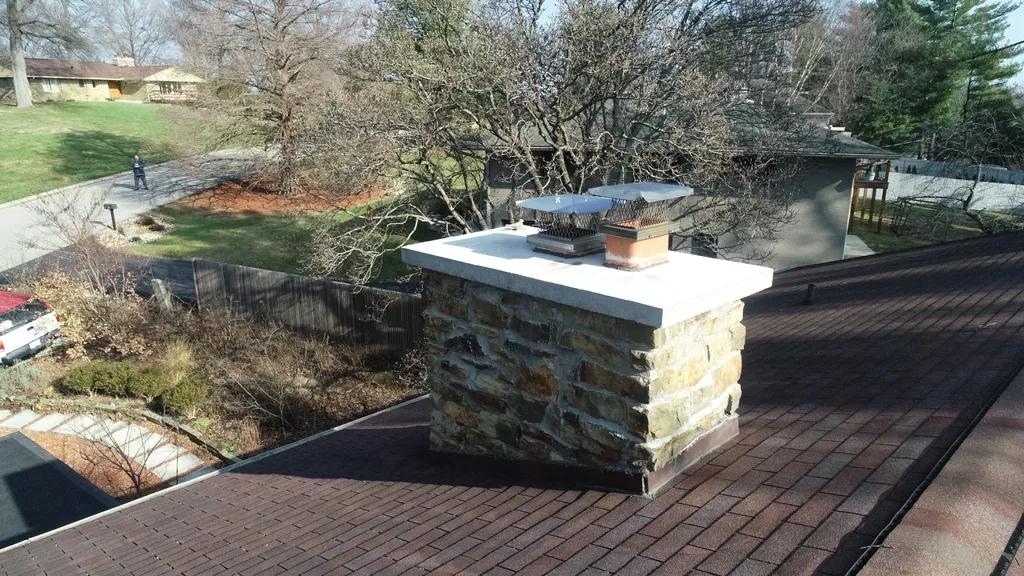Indiana’s chimneys are vital components of many homes, providing essential ventilation for fireplaces and heating systems. However, an often overlooked issue that plagues many homeowners is rain water intrusion in these structures. Understanding the causes and consequences of rain water leakage in chimneys is crucial for maintaining the integrity and safety of your home. In this article, we will delve into the common sources of water intrusion in Indiana chimneys and offer practical solutions to address this pressing issue.
Table of Contents
- Understanding the Causes of Rain Water Intrusion in Chimneys
- Common Signs of Rain Water Damage in Indiana Chimneys
- Preventing Rain Water Damage in Chimneys: Effective Solutions and Maintenance Tips
- Q&A
- In Summary

Understanding the Causes of Rain Water Intrusion in Chimneys
One of the primary causes of rain water intrusion in chimneys is cracked or damaged chimney caps. When chimney caps are cracked, water can easily seep through and enter the chimney structure, causing damage to the interior components. Additionally, a damaged chimney crown can also lead to rain water intrusion, as it fails to effectively divert water away from the chimney structure.
Another common culprit of rain water intrusion in chimneys is deteriorated mortar joints. Over time, mortar joints can wear down and become porous, allowing water to penetrate the chimney structure. Inadequate flashing around the chimney can also contribute to water intrusion, as it fails to properly seal the connection between the chimney and the roof. It is crucial to address these issues promptly to prevent further damage to the chimney and surrounding areas.

Common Signs of Rain Water Damage in Indiana Chimneys
When it comes to Indiana chimneys, rain water damage is a common issue that homeowners must be aware of. There are several signs that indicate your chimney may be experiencing water intrusion, which can lead to costly repairs if not addressed promptly. One common sign of rain water damage in chimneys is efflorescence, a white, powdery substance that forms on the exterior of the chimney. This is a clear indicator of water seeping into the masonry and can cause deterioration over time.
Another sign to watch out for is rust on the damper or firebox. If you notice rust in these areas, it is likely that rain water is getting into your chimney and causing damage to the metal components. Additionally, a musty odor coming from your fireplace could indicate mold growth due to excess moisture from rain water intrusion. It is important to address these issues promptly to prevent further damage to your chimney and ensure the safety of your home.

Preventing Rain Water Damage in Chimneys: Effective Solutions and Maintenance Tips
One common issue that homeowners in Indiana face is rain water intrusion in their chimneys. This can lead to various problems such as water damage, mold growth, and structural deterioration. To prevent rain water damage in chimneys, it is important to understand the causes and effective solutions for this issue.
One effective solution is to install a chimney cap, which can help prevent rain water from entering the chimney. Regular maintenance such as inspecting and repairing any cracks or gaps in the chimney structure can also help prevent water intrusion. Additionally, installing a waterproof sealant on the chimney can provide an extra layer of protection. By taking these preventative measures, homeowners can avoid costly repairs and maintain the integrity of their chimney for years to come.
Q&A
Q: What causes rain water intrusion in Indiana chimneys?
A: Rain water intrusion in Indiana chimneys can be caused by a variety of factors including cracked or deteriorated chimney caps, damaged mortar joints, and improperly installed flashing.
Q: How can rain water intrusion in chimneys affect a home?
A: Rain water intrusion in chimneys can lead to costly structural damage, mold growth, and potential health hazards. It can also cause damage to the interior of the home and affect the efficiency of the fireplace.
Q: How can homeowners prevent rain water intrusion in their chimneys?
A: Homeowners can prevent rain water intrusion in their chimneys by ensuring that their chimney caps are in good condition, having their chimney inspected and maintained regularly by a professional, and making sure that their flashing is properly installed and sealed.
Q: What are some signs that a chimney may be experiencing rain water intrusion?
A: Some signs that a chimney may be experiencing rain water intrusion include water stains on walls or ceilings near the chimney, a musty odor coming from the fireplace, and visible water damage or rust on the fireplace or chimney components.
Q: What steps should homeowners take if they suspect rain water intrusion in their chimney?
A: If homeowners suspect rain water intrusion in their chimney, they should contact a professional chimney inspector or contractor to assess the situation and recommend appropriate repairs. It is important to address the issue promptly to prevent further damage to the home.
In Summary
In conclusion, it is crucial for homeowners in Indiana to understand the issue of rain water intrusion in chimneys in order to prevent potential damage and costly repairs. By taking proactive measures such as installing a chimney cap, sealing any cracks or gaps, and ensuring proper maintenance, you can protect your chimney and prolong its lifespan. Remember, prevention is key when it comes to addressing rain water intrusion in chimneys. We hope that the information provided in this article has been helpful in increasing your awareness of this important issue. Thank you for reading.


